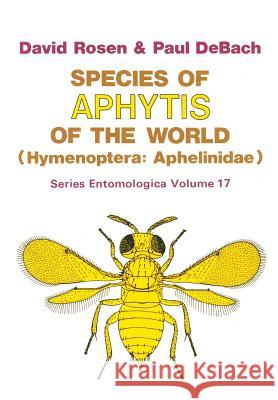Species of Aphytis of the World: Hymenoptera: Aphelinidae » książka
Species of Aphytis of the World: Hymenoptera: Aphelinidae
ISBN-13: 9789400996052 / Angielski / Miękka / 2011 / 810 str.
The great importance of accurate systematics for biological control has been pointed out and discussed time and again by numerous authors (see Clausen, 1942; Sabrosky, 1955; Schlinger and Doutt, 1964; Compere, 1969; Rosen and De Bach, 1973; DeBach, 1974; Delucchi, Rosen and Schlinger, 1976; and others) and does not require any further elaboration here. Suffice it to say that when natural enemies are being sought, or are transferred from one region to another in order to bring about biological control of an arthropod pest, correct identification of both the target pests and their natural enemies is an essential prerequisite for ultimate success. Failure in biological control has often resulted from inadequate systematics. This monograph, presenting a bio- systematic revision of an important group of natural enemies, is therefore intended as a contribution to biological control as well as to basic science. The species of the genus Aphytis Howard (Hymenoptera: Cha1cidoidea: Aphelinidae) are minute, yellow or grayish wasps usually not exceeding one millimeter in length (see Figure I). They develop exclusively as primary ectoparasites of armored scale insects (Homoptera: Coccoidea: Diaspididae) and are the most important natural enemies of these serious pests. Armored scale insects are usually free beneath the hard covering scale or shield. The adult Aphytis female pierces the shield with the ovipositor and lays one to several eggs on the body of the scale insect.











